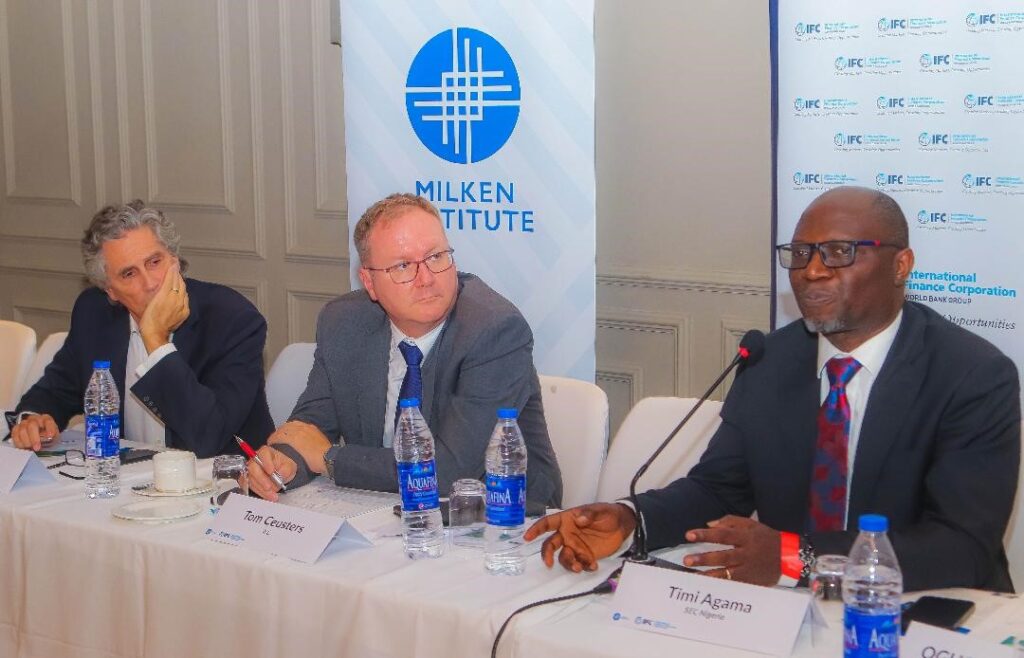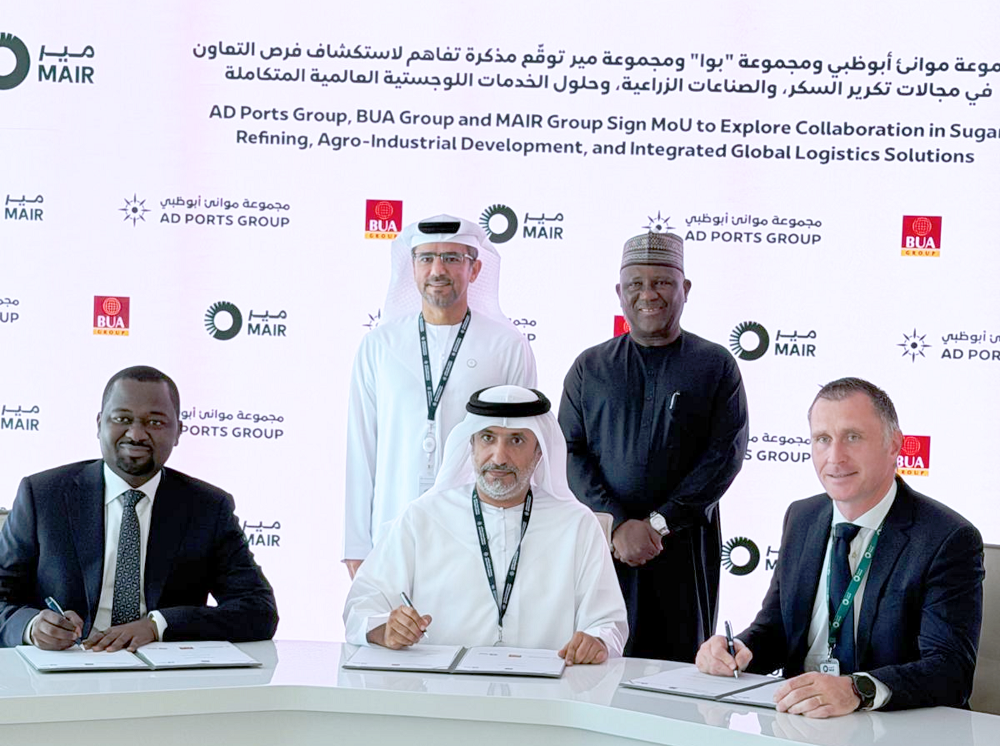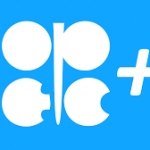
Caption: From left, Chief Operating Officer, Milken Institute, John Hunter; and Director, Treasury Market Operations, International Finance Corporation, Tom Ceusters listening to the Director General, Securities and Exchange Commission, Nigeria, Agama Emomotimi, making a point at the International Finance Corporation (IFC)/Milken Institute stakeholders conference tagged Financing the Future held in Lagos on Thursday.
The Director-General of Nigeria’s Securities and Exchange Commission (SEC), Dr. Emomotimi Agama saying the capital market is being grossly under utilised as a financing source for the humongous infrastructure deficit in the domestic economy.
Considering the manifold contribution of the capital market in mobilizing funds for other sectors of the economy in achieving their objectives, he said the capital market has the needed capacity, if adequate awareness is created to finance Nigeria’s Infrastructure deficit exposure.
The SEC boss who was moderating a panel session on the second day of a stakeholders programme themed: “Financing the future in Nigeria,” organized by the duo of International Financing Corporation (IFC) and Milken Institute in Lagos, noted the need for more investor education from operators in the market.
He spoke of the need for the regulator and the operators to further strengthen the capital market where fund is raised, by encouraging market-creative initiatives.
According to Agama, “we have the capacity. Debt with regards to capital market in Nigeria has not been explored. It is because people do not know and that is why we are out there letting them know about the capital market. The capital market is the barometer of any economy.
“Nigeria has the capacity to fund the capital market… Our infrastructure needs is huge, in every aspect. Considering that we have 36 state in the country and the FCT. And (they) require funds for roads, health services, airport, education, agriculture, it’s all encompassing, so we are looking beyond $50bn to be able to deal with this infrastructure deficits.
President Bola Tinubu, he continued, “has asked us to grow a $1tr economy. That is possible, it is possible in the capital market. It is possible via the mining sector, it is possible via the Oil & Gas industry. it is possible via construction. It is possible via housing and development. It is possible in every way. If you imagine the amount of money we need to galvanize that, then you know it is possible. No is not an answer for us in the capital market. Because it is possible”.
Speaking during the session, Tom Ceusters, Director, Treasury Capital Market & Investments at IFC, said being a critical partner, there is need to educate Nigeria’s mid-level regulators and market infrastructure participants.
“To upscale the level of the capital market in respective countries, so far, we have educated 224 alumni from 56 countries, including 22 in Nigeria.
He expressed the IFC’s satisfaction with the domestic economy after eight years of partnership, stressing that “results of the programme are very tangible.
“As we can see with the Director General of the SEC, he is an alumni of the programme six to seven years ago. And we see it in many places, where participants in the programme make the best of career, and have impact on respective regulation in the countries they operate in.
“We assess changes in regulation. How many proposals are being made. That’s how we assess the impact of the programme, and that has been very impactful in terms of advancement in introduction of new products into the market; and regulation in terms of capital market development,” he added.
Also speaking at the event, John Hunter, Chief Operating Officer and Chief Financial Officer, Milken Institute said the programme is a good start, given the quality of conversation that took place.
He however admonished participants that it should not end like that, because everything would depend “on the action taken on the conversation.”
On what the regulator needs to do to drive finance to fund infrastructure deficits, he urged them to “make the market attractive… look at all the basic elements of ease of doing business and examine what makes you attractive and less attractive.”
Continuing, he expressed belief that “Africa has the bargaining power. The huge population is an asset. They have a good story to tell, unlike the perception out there”.














